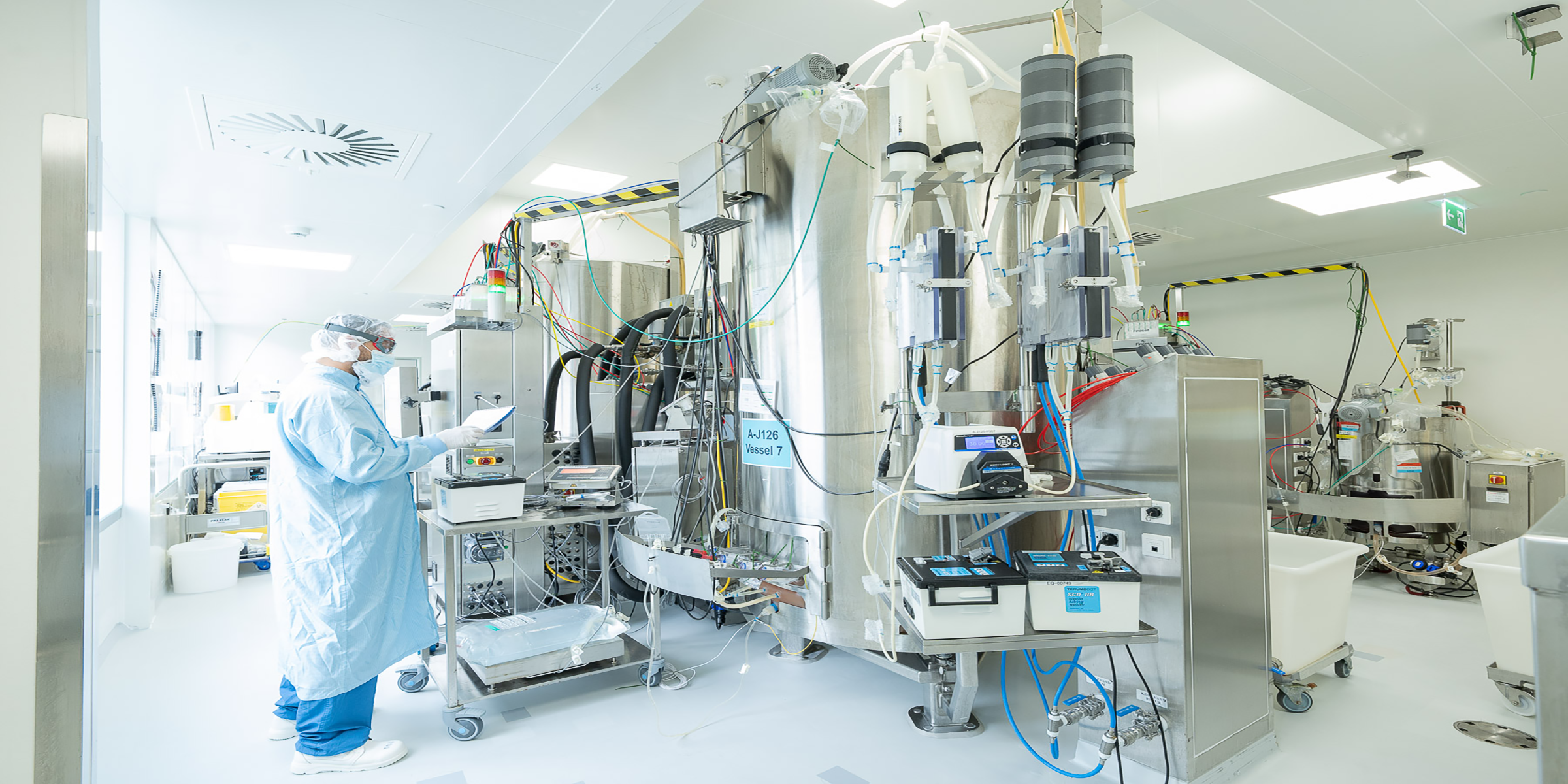3 min read
Bubbling Innovation: Dynamic Trends Shaping the Future of Microbial Fermentation
Nick McDonald January 23, 2024 at 11:15 AM

Microbial-based drug development and manufacturing remain a viable standard in the pharmaceutical industry due to this system having the potential to produce a wide range of therapeutic products efficiently.
And while much of the “innovation hype” in our industry is focused on the promising of new drug types and systems for messenger RNA, cell therapy and gene therapy, the innovation in traditional fermentation should not be overlooked.
As the field continues to evolve, failing to understand the latest trends will inhibit drug developers from building drug product platforms using microbial processes, and could cause them to fall behind in the race to get their product to the clinic and beyond before the competition.
In this article, we explore five trends our scientists are bringing into their work at AGC Biologics to ensure microbial fermentation projects are managed effectively, and ultimately, successful for our developer partners.
Trend 1: CRISPR-Cas Gene Editing in Microbial Strain Engineering
CRISPR-Cas gene editing technology allows precise modifications of microbial genomes, facilitating the development of high-performing microbial strains for drug production. This enables the production of novel compounds and the optimization of existing processes, resulting in increased yields and reduced production costs. In some cases, there have been promising results in CRISPR to support the production of unicellular photosynthetic organisms. In a research study on commercial applications, CRISPR systems were used to improve lipid production by more than 60% by preventing the degradation and hydrolysis of fatty acids from glycerophospholipids without a significant difference in the cell growth.
Trend 2: Single-Use Bioreactors and Facilities Benefits:
Single-use bioreactors and facilities minimize the risk of cross-contamination, shorten turnaround times, and reduce cleaning validation requirements. They offer enhanced flexibility and cost-effectiveness, particularly for smaller-scale manufacturing. Because the same equipment is used in process development and production, processes can be developed with outstanding scalability.
Trend 3: Process Analytical Technology (PAT) and Real-Time Monitoring
PAT and real-time monitoring allow for continuous data collection and analysis during the production process. This trend offers better process control, improved product quality, and reduced variability. These activities can help provide accurate mechanisms for collecting the correct information you need to ensure the drug substance or product is in line with expectations, will be scalable, meets quality needs, and more.
Trend 4: Production and Scale-up Modernization
Recent advancements in microbial biologics production and scale-up have revolutionized manufacturing processes, significantly improving efficiency and accessibility. Refinements in fermentation techniques, including optimized culture conditions and innovative bioreactor designs like single-use systems and continuous fermentation, have led to enhanced microbial growth rates and increased production capacities. Integration of advanced downstream processing methods, such as improved purification technologies and the adoption of continuous processing approaches, has resulted in higher purity and yields of biologics while reducing processing times and overall manufacturing costs. These collective advancements in production and scale-up methodologies have not only streamlined the manufacturing process but have also made microbial biologics more readily available to meet the rising demands across diverse industries.
Trend 5: Expression in Cell Free Systems (ALiCE, Sutro)
In recent years, there has been a notable trend toward exploring expression in cell-free systems as an alternative approach to producing large-molecule drugs. This shift is primarily fueled by the inherent advantages these systems offer, such as improved scalability, reduced production time, and enhanced flexibility in molecular design. Among the emerging cell-free platforms, two systems, ALiCE (Arthrobacter lysates for the cell-free expression of proteins) and Sutro's Xpress CF™, have gained attention for their distinct benefits. ALiCE leverages the Arthrobacter genus to create lysates that serve as a robust and cost-effective system for protein expression, offering a broader range of post-translational modifications and native folding conditions. On the other hand, Sutro's Xpress CF™ system is renowned for its high-throughput capabilities. It enables rapid screening of various protein constructs and itemizing conditions for optimal expression, making it a promising tool for accelerating drug development pipelines. ALiCE and Sutro represent innovative cell-free platforms that exhibit considerable promise in advancing microbial-based products.
As the field of microbial-based drug development and manufacturing continues to evolve, staying informed about these intriguing trends is critical for drug developers and pharma companies. Embracing these trends can provide significant benefits, such as increased efficiency, improved product quality, and personalized treatment options. However, developers must be cautious and address potential pitfalls, such as regulatory challenges, safety concerns, and the need for careful planning and optimization. By leveraging these trends effectively, drug developers can unlock new opportunities and advance their efforts to bring innovative microbial-based therapies to the market, benefiting patients and helping to revolutionize the care they receive.
Learn more about AGC Biologics’ full line of Microbial CDMO Services.
.jpg)
2025 in Review: Scaling Complexity through Collaborative Expertise


